This post contains affiliate links for which I may make a small commission to help keep the site running. You will not be charged extra for these items had you not clicked the links. Thank you for your help to keep the site running!
One of the most worrying aspects of study abroad in London for many students is the cost.
Not only financing the actual study abroad program, but spending money in many countries where the dollar isn’t as strong as the local currency.
Students aren’t exactly known for having loaded wallets, but the urge to buy ALL THE THINGS in your host country is strong.
If you’re finding yourself equally worried about the cost of studying abroad in London or figuring out how much spending money to bring for study abroad in London, I’ve put together this resource filled with my tips and tricks that I’ve learned throughout my 3 semesters studying abroad in London and one year doing a Master’s program in London at the University of Westminster.

Before you read any more, a great resource to keep in mind is the London Pass, as it gives you access to 80+ attractions throughout London for a reduced price!
Firstly, no matter your reason for being here, you need the best book on living in the UK for Americans ever written – the book is called “Girl Gone London: An American’s Guide to Surviving Life in the UK” and you should click here and check it out.
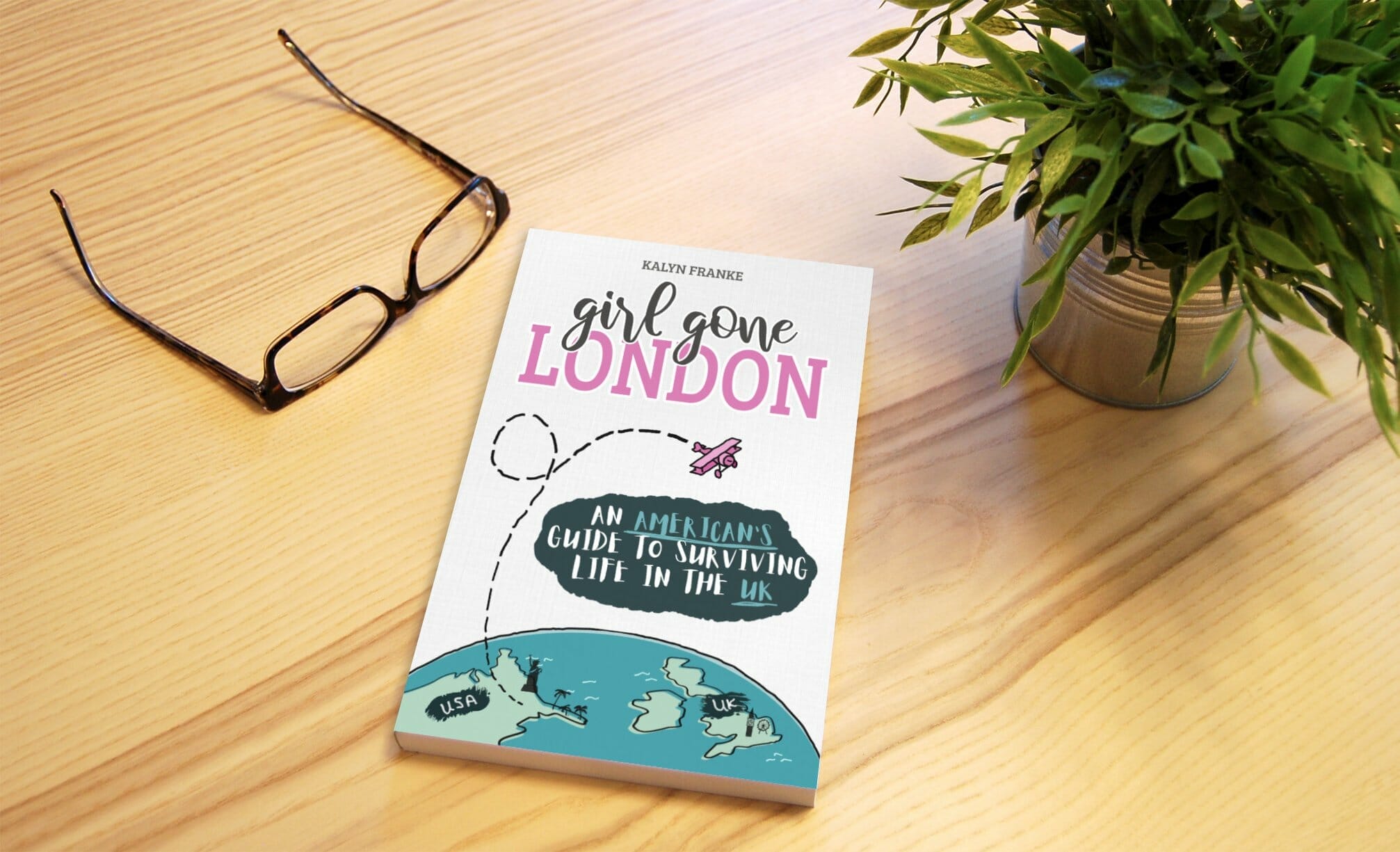
I also may have written it, so I’m biased.
But truly, if you’re coming to the UK as an expat, a study abroad student, or even a visitor, my guide to life in the UK contains both personal anecdotes and maybe too-honest experiences, as well as resources and advice on topics ranging from homesickness in the UK (or how not to rage book a flight to America like I did), driving in the UK, being a student in the UK, and more practical advice about bank accounts, buying houses, and more.
It’s truly a one stop shop for all of the weirdness and wonderfulness (is that a word?) that comes along with life in the UK, and also there is plenty of opportunity to laugh at me as I share all of my expat fails so there’s that.
So, without further adieu, here’s everything you need to know about studying abroad in London on a budget.
GET A FREE LONDON INTRO GUIDE and ACCESS TO MY FB GROUP
Start your planning with this “Intro to London” guide and access to my London planning Facebook group!
Hey! Want more honest UK tips and planning advice? Click here to join my London and UK Travel Tips Facebook group, where I can answer more of your questions!
Cost of Studying Abroad in London
The first cost of studying abroad in London is going to come from your actual program fee – the fee you pay either to your home university or directly to the British university if you’re doing a direct enroll program.
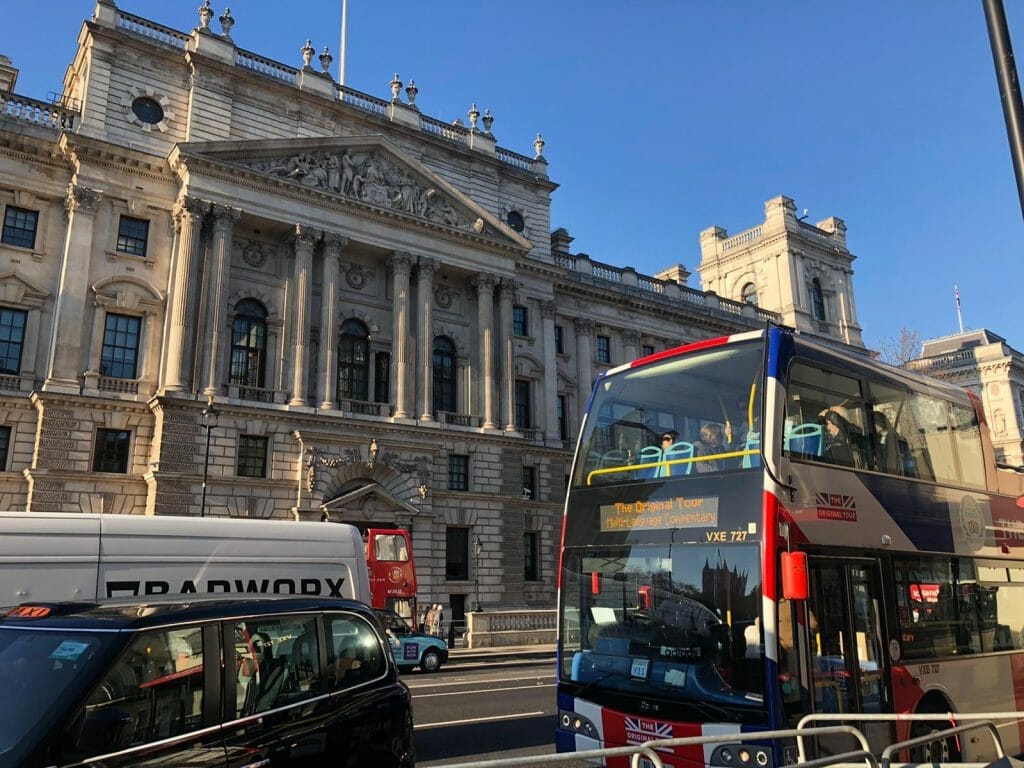
This varies from program to program and is something your study abroad office on your home campus can help you figure out.
Mine always ranged from $11,000 – $18,000, with the higher end being for studying directly at a British university and having a single room.
The second component of the cost of studying abroad in London has to do with the actual spending money you’ll need for studying abroad.
I’ll address this down below, but make sure to not forget about this essential part of studying abroad when deciding if you can afford to study abroad in London.
IMPORTANT: are you coming to the UK from abroad?
In case you’re reading this from outside the UK and will be a foreign visitor here, you need to know these 2 things to stay safe and save money.
- Travel insurance – you need it when going overseas! I use this site to get the best quotes and purchase my packages from. Do not skip this – having medical coverage abroad as well as other coverage in case of missed flights, lost luggage, etc is essential. As I said, I have never gone wrong using this site.
- International debit cards without fees – do not get stuck paying extortionate foreign fees when using your card abroad (and the UK is almost all card these days). I use the Wise debit and travel card which you can apply and learn more about here.
How Much Spending Money Do I Need to Study Abroad in London?
When it comes to how much money you should bring to study abroad in London, there is a huge range of numbers, which makes it hard to pin down exactly how much you should have.
From my personal experience, I spent about $3,000 – $4,000 for one semester in London on food, travel, activities, and random necessities (this was when I had an Oyster card included in the program, so it doesn’t even include the Oyster!)
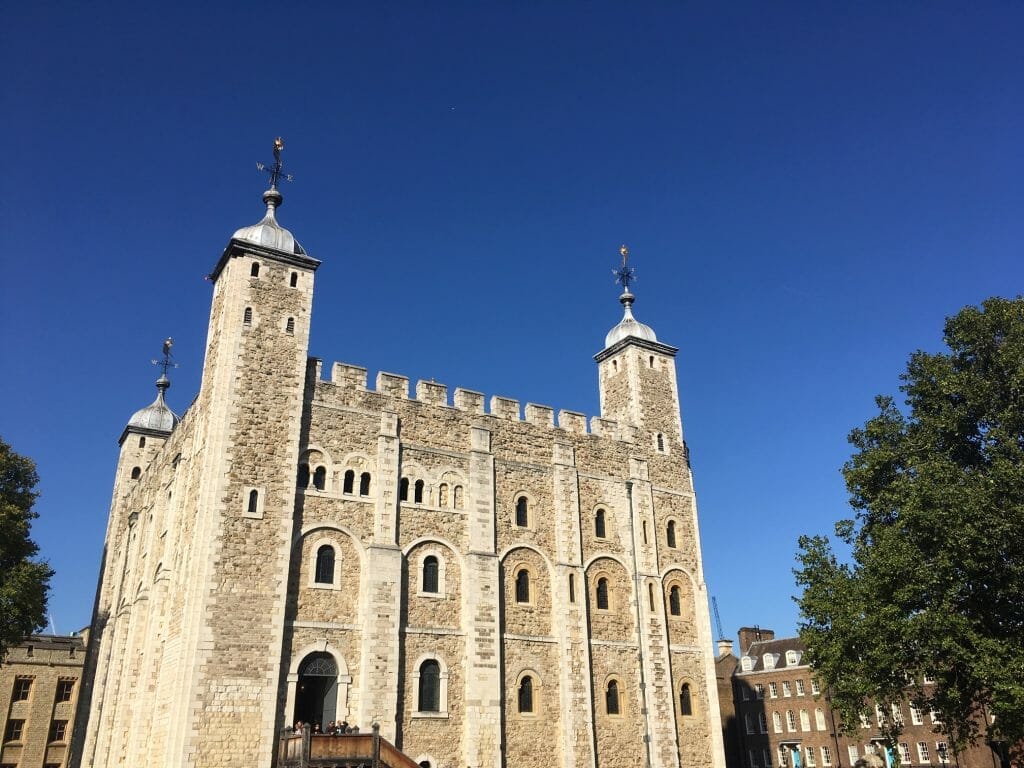
This, of course, also varies based on how long your program is.
If you’re on a three week program over the summer, you’re going to need far less spending money than if you’re studying abroad for a whole year.
It also makes a difference if you’re studying abroad in central London or living a bit further out.
If you really want to spend it up, I’d recommend having $5,000 available to you for your spending money while studying abroad in London.
If you’re willing to budget and travel less, you could probably get by on $2,000 – $2,500 (again, this is if you’re really not wanting to spend the cash and want to make sure you have enough).
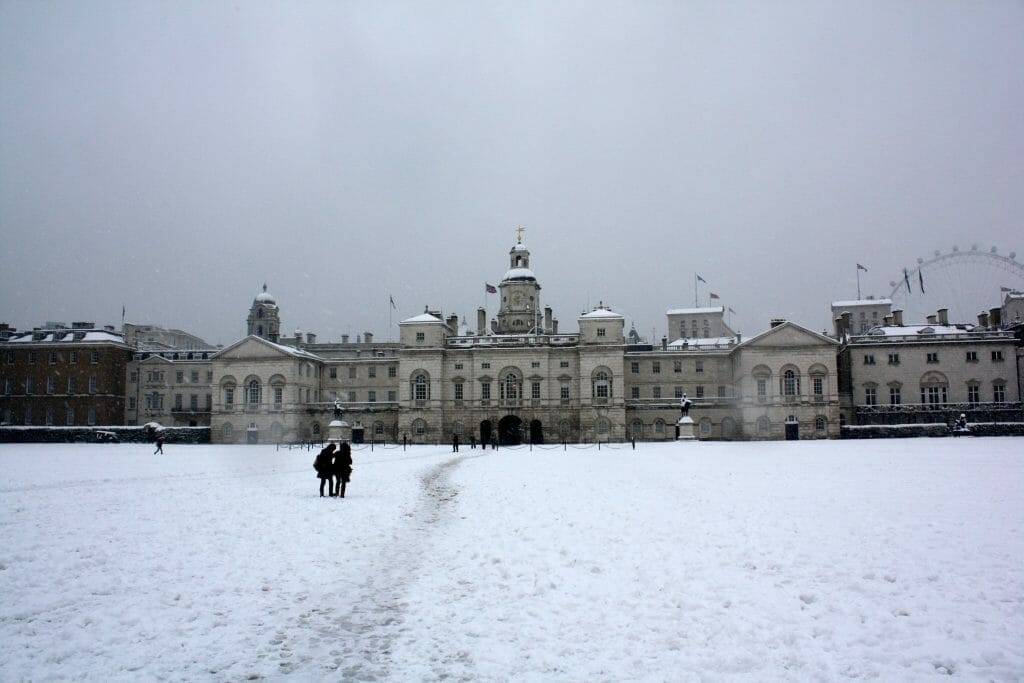
Making a Budget for Studying Abroad in London
You’ll find budgeting tips for studying abroad in London in the next section, but for now it’s important to think through every expense you could possibly have while abroad.

Here’s a list of things you might want to include in your budget:
- Transportation (if not included in your program fee, including London transportation and flights to London
- School supplies
- Any new clothes you need while there (coats, swimsuits)
- Food (if not included in your program fee)
- Attractions you want to do that aren’t included in your program fee, like the London Eye
- Travel budget for traveling within the UK or Europe on the weekends or during a week-long break
- Toiletries
- Necessities such as a towel, shower shoes, or other supplies you can’t bring with you (purchase at Primark)
Tips for Studying Abroad in London on a Budget
1. Watch Your Eating Out
Eating out is a fun way to explore new areas of the city and hang out with your friends, but the prices in London can add up so fast you’ll be broke before you’re done with your hamburger.

This isn’t to say ‘don’t eat out,’ but if you’re stuck on cash, buy some bread and peanut butter and make sandwiches or homemade salads for lunch rather than grabbing something from Pret or Starbucks because you were unprepared.
You can also eat at London’s many street food markets, including Borough Market.
2. Take advantage of freebies
London is one of the greatest cities in the world for people who enjoy free events, which describes every student ever.
There are entire websites dedicated to free things in London, and most of the museums are free and open daily.

3. Get a Student Card
My student card expired last month, and suddenly the world has gotten a lot more expensive.
But not you!
You are still blessed with student discounts, and many shops and experiences in London offer them with a valid ID.
Sometimes it doesn’t hurt to ask if it’s not advertised either, as shops won’t always blatantly advertise a way for you to save money. Imagine that

4. Bring School Supplies with You
If you haven’t left yet, bring a notebook or two and some pens and pencils from home for your classes.
They won’t break the bank, but school supplies here are more expensive and who needs to spend an extra 5 pounds on paper when you could have spent it on something more fun?
5. Travel off-peak
Whether you’re traveling on the tube or to another UK city by train, like going from London to Brighton, travel off-peak if you can help it.

This can save a lot of money, especially on longer journeys, and if you have to leave at 9:49 rather than 9:09, well, you’ll survive.
7. Check your bank account
Studying abroad always feels a bit like a very long vacation where you’re also somehow forced into taking classes.
Unless you’re on a very short exchange program, you’re likely going to be in London for a few months or more.
Do not constantly treat your bank account as if it’s in vacation mode.
50p here and 2 pounds there and 20 pounds there (why is the London eye so expensive?!) is going to become a problem if you’re truly on a budget.
Don’t spend as if tomorrow is your last day in the country unless tomorrow really IS your last day in the country, and then you have permission to buy that Queen bobblehead you’ve always wanted.
8. Tell Your Friends Your Budget
One of the hardest part about sticking to a budget while studying abroad is having your friends trying to convince you to spend more than you have.
It’s really tempting to say ‘yes’ to everything because you want to fit in or have people like you, but it’s not going to work out so well when you still have a couple weeks left of the program and have exactly 0 dollars left (this has happened to me – seriously do not recommend).

Be open and honest with people that you’ve created a budget that you have to stick to, and that will go a long ways in making sure that people respect your boundaries and don’t make you feel bad.
And if they do?
Then they’re not really that great of people to begin with, so make some new friends anyway.
9. Invite People to do Free Things with You
People love being invited to things – it makes them feel wanted and special.
Luckily, London has tons of free things to take advantage of every single day.
From free museums to free parks in London to free festivals – the list goes on.
Invite your friends to do some of these free things with you.
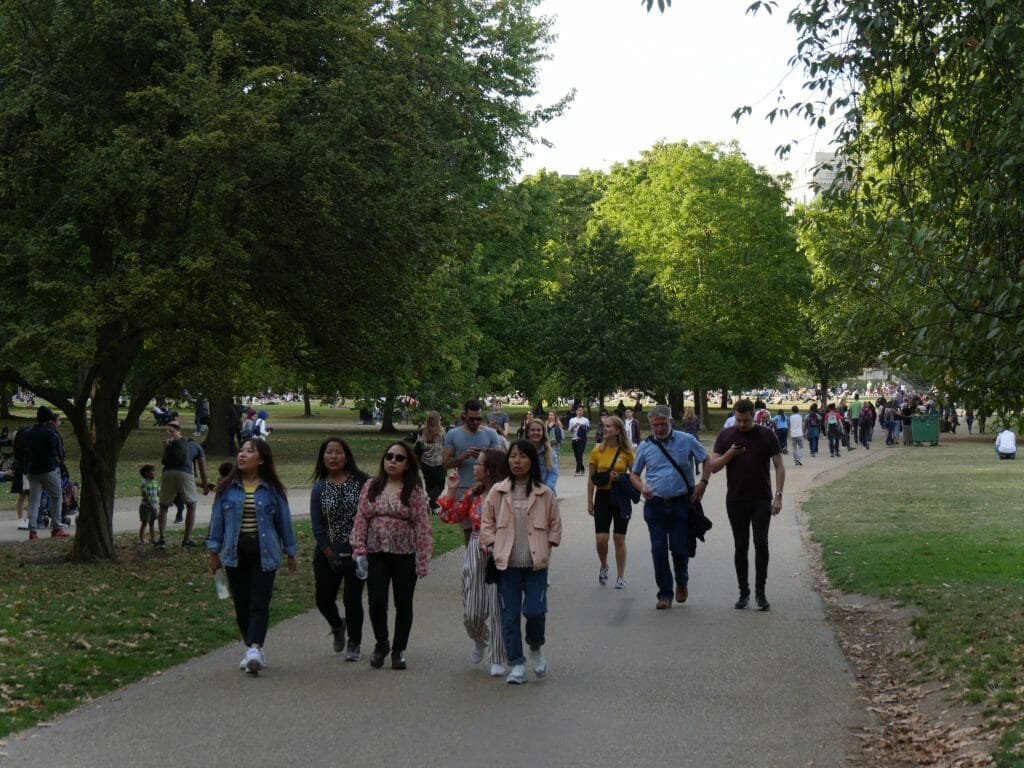
This way, you’re making the plans and managing expectations.
Some of my favorite memories from my semester studying abroad in London were sitting on Primrose Hill listening to music, visiting the British Museum to see Cleopatra, and simply walking all around town to take in the sites and take pictures.
10. Take Advantage of Student Activities
London is full of students.
It’s one of the main reasons you should study abroad in London.
This city is teeming with people who are even broker than you, and universities know that.

Your study abroad program should put on regular activities that you can participate in (included in your program fee), but even if they don’t, just do a quick search online to find out what other free student activities are taking place across the city.
11. Travel within the UK rather than Europe
It’s so tempting to use London as your gateway to the rest of Europe every weekend, but this can get expensive quickly.
Even if you’ve read all my tips for using budget airlines and got super cheap flights, you still need to factor in the transportation from the airport to your accommodation, the price of your accommodation, the price of food when you’re abroad, etc.

This isn’t to say don’t travel in Europe while abroad, but make sure you don’t overdo it and blow your budget on a couple trips to Spain when you could have had 10 trips to new cities within the UK for the same price.
I generally think you should plan one big trip to Europe, possibly in your spring or fall break, and then spend the rest of the weekends in London or traveling within the UK.
